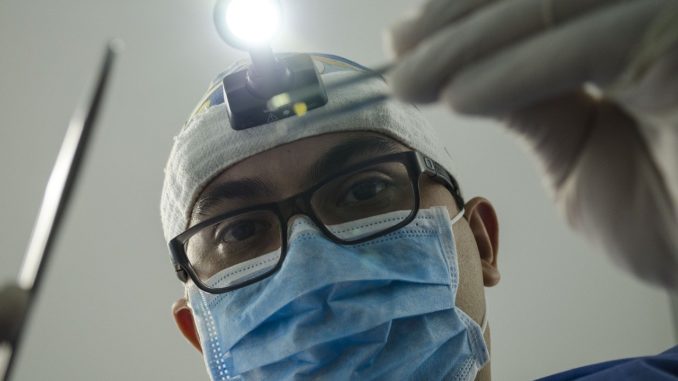
A strategy aiming to tackle the vast health inequalities across North Yorkshire has been pushed forward as its public health boss admitted the best efforts of the council and regional NHS bosses would make little difference to residents’ ability to access NHS dentistry.
Councillor Michael Harrison, North Yorkshire Council’s executive member for adult services and public health, said the North Yorkshire Joint Local Health and Wellbeing Strategy to 2030, developed in conjunction with the NHS and patients’ group Healthwatch North Yorkshire, aimed to be transformational.
The document highlights areas such as Scarborough and parts of Selby, Harrogate and Richmondshire where the gap in life expectancy between the most deprived and least deprived wards can be up to 11 years for men and ten years for women.
The plan of action includes continuing the regional NHS “programme of investment in access to NHS dentistry”, using population health data “to direct dental funding to the areas of most need to help reduce inequalities”.
Ahead of its adoption, several elected community representatives said the strategy was “fantastic” on paper, but profoundly flawed in reality, with several councillors saying it was virtually impossible to get an NHS dental appointment in many areas of the county.
Scarborough councillor Rich Maw said while residents in the Ramshill part of his division were living on average ten years less than in other areas of North Yorkshire, and effective prevention services such as getting access to NHS dentistry would be a start to bridging the life expectancy chasm.
Falsgrave and Stepney division councillor Liz Colling said “yet another dental practice” in her area would stop offering NHS services on September 1 and most of the few remaining practices still offering NHS services were “not even accepting people onto their waiting lists”.
While heralding “excellent work that is happening with oral public health and the work within schools to encourage tooth brushing and good oral care”, she questioned what the authority was doing to ensure children could access NHS dentistry.
Aire Valley councillor Andy Brown said the strategy contained “some fantastic theories”, including a pledge to develop “a whole system transformational approach to physical activity and access to healthy food”, but said the strategy contradicted the council’s continuing sale of sugary drinks at its leisure centres.
He said more than a fifth of children in the final year of North Yorkshire primary schools “could not run properly” as they had been judged to be “obese”
However, housing and leisure services executive member Councillor Simon Myers said the authority would use every tool it had to reduce health inequalities and was set to review its leisure services offer.
Children’s services executive member Councillor Janet Sanderson added: “Children make improvements in heir health by being educated, not restricted in choice.”
Coun Harrison said the closure of the latest NHS dental surgery was part of a trend that stretched back 20 years to the start of the NHS national contract for dentistry, which he said was viewed as “a barrier to better care”.
He said the contract had set a fixed unit of dental activity rate in 2006, which could disincentivise the provision of NHS dentistry, requiring practices to provide “episodes of treatment rather than continuity of treatment”.
Coun Harrison said the situation had been exacerbated in areas such as Scarborough as there was no extra funding for practices that were providing treatment in areas with higher deprivation.
He said although regional NHS bosses had assumed responsibility for the commissioning of dental services last year, they were constrained by the national contract, so were instead undertaking reviews with practices to understand their issues and prevent contract hand-backs.
He said the regional NHS was operating flexible commissioning, particularly for primary school aged children, as well as offering increased numbers of emergency appointments.
Coun Harrison added “none of this will fix the root cause of the national contract”.
He said: “The new Secretary of State for health and social care apparently has reported that the NHS is broken. I think we’ll all agree, certainly for NHS dentistry, absolutely it is. And without fundamental changes to the national contract I think the public will continue to stuggle to access NHS dental care.”


Be the first to comment